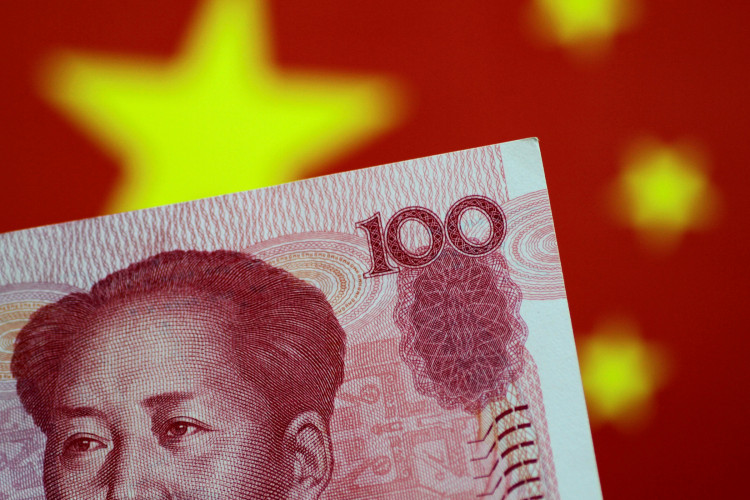China's highly anticipated briefing on economic stimulus left global investors with more questions than answers, as Finance Minister Lan Fo'an hinted at increasing the national deficit but stopped short of providing concrete details on the scale of the proposed measures. Speaking on Saturday, Lan emphasized that the Chinese government has "rather large" room to increase debt and the deficit to support the country's slowing economy. However, many were hoping for more clarity on how much fiscal support would be deployed and how it would be directed.
In recent weeks, pressure has mounted on Beijing to unveil significant fiscal stimulus to counter the country's sluggish economic growth. After an initial surge of optimism following the government's economic announcements in late September, investors have grown wary of the lack of specifics. "The strength of the announced fiscal stimulus plan is weaker than expected," said Huang Yan, an investment manager at Shanghai QiuYang Capital. "There's no timetable, no amount, no details of how the money will be spent."
Economists widely agree that China's economy, which grew by 5% in the first half of 2024, is struggling to maintain its growth trajectory. With the country's real estate market showing little improvement and retail sales remaining flat, many analysts had hoped for a more robust fiscal injection. Projections for necessary stimulus have ranged from 2 trillion yuan ($283 billion) to as much as 10 trillion yuan ($1.4 trillion), depending on the scope of Beijing's ambitions.
The briefing, which took place amid a backdrop of volatile market reactions in China, did little to calm investors' concerns. The lack of specifics regarding new spending measures left some market participants doubting whether the Chinese government would be able to meet its 2024 GDP growth target of 5%. Bruce Pang, chief economist at JLL Greater China, noted that more details could be released at a parliamentary meeting later this month but acknowledged that investors would need to remain patient.
Among the proposals floated by the Ministry of Finance were policies to address mounting local government debt, provide stabilization for the real estate market, and support employment. Vice Minister of Finance Liao Min also discussed allowing local governments to use special bonds for land purchases and affordable housing subsidies, which could now be applied to existing housing inventory rather than just new construction. However, the absence of specific figures and timelines tempered market enthusiasm.
Meanwhile, the People's Bank of China (PBOC) has already taken some action, cutting interest rates and extending support for real estate investments. However, financial markets have responded tepidly, with the CSI 300, one of China's major stock indexes, seeing a brief rally followed by losses as investors realized the size of the stimulus may fall short of expectations.
Fred Neumann, HSBC's chief Asia economist, highlighted that while concrete numbers could emerge by the end of October, the delay could fuel uncertainty in the markets. "Investors will need to be patient," Neumann said. The wait is raising doubts about whether Beijing's actions will be sufficient to revive the flagging property market and boost consumption - two critical sectors for sustaining long-term growth.
The looming question for many market watchers is how China plans to finance its next wave of economic stimulus. While the government could issue special sovereign bonds to raise approximately 2 trillion yuan, as reported by Reuters, Bloomberg noted that authorities are considering injecting up to 1 trillion yuan into the country's largest state-owned banks. Neither figure was confirmed in Saturday's briefing, leaving investors in the dark about the scale of the coming interventions.
Lan's comments come amid broader concerns over consumer confidence in China, which has faltered in recent months due to years of strict anti-corruption campaigns and a sustained government drive to reduce debt. While many analysts have praised these efforts to reduce financial risk, the unintended consequence has been a slump in consumer demand and ongoing instability in the housing sector.
Ting Lu, chief economist at Nomura, pointed out that how the stimulus is spent may be just as important as the amount itself. "It matters where the money goes," Lu said, noting that if stimulus funds merely shore up struggling local government finances, it may not provide the broad boost to consumer demand and real estate that Beijing is aiming for.
Investors are also grappling with the effects of Beijing's cautious approach to spending. Despite calls for aggressive fiscal stimulus, China's leadership has consistently taken a measured approach, likely due to concerns over long-term financial stability. Matthew Haupt, portfolio manager at Wilson Asset Management in Sydney, said that while some investors may be disappointed by the lack of immediate action, China's gradual efforts to stabilize the economy could still bear fruit. "The more important capital flows might be encouraged by continuing efforts to stabilize the economy and keep growth at appropriate levels," Haupt said.






